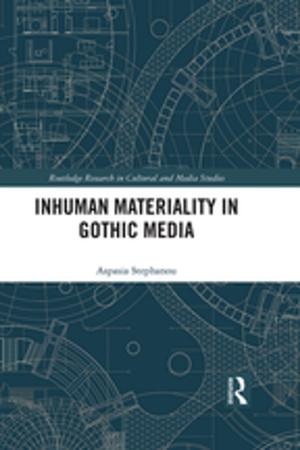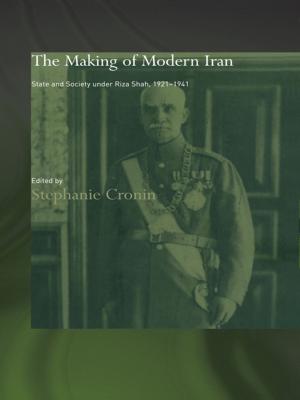Silver and Society in Late Antiquity
Functions and Meanings of Silver Plate in the Fourth to Seventh Centuries
Nonfiction, History| Author: | Ruth E. Leader-Newby | ISBN: | 9781351900072 |
| Publisher: | Taylor and Francis | Publication: | May 15, 2017 |
| Imprint: | Routledge | Language: | English |
| Author: | Ruth E. Leader-Newby |
| ISBN: | 9781351900072 |
| Publisher: | Taylor and Francis |
| Publication: | May 15, 2017 |
| Imprint: | Routledge |
| Language: | English |
The spectacular hoards of late antique silver - Mildenhall, Thetford, Sevso - discovered since the middle of the last century have aroused much interest in this luxury art form. But what did these pieces mean to their owners, and why was silverware so important in late antiquity? Silver and Society in Late Antiquity examines such questions through an integrated, synthetic analysis of the history of silver in the Roman empire between 300 and 650 AD, focusing upon the cultural significance of this luxury art form in all its different manifestations--sacred, imperial and domestic. Ruth Leader-Newby looks at a wide range of objects from both the eastern and western halves of the Roman empire - including Britain - in order to determine silver's role in the wider sphere of late antique visual culture, asking questions about the relative significance of individual forms of artistic production, and their relationship with each other. In doing so, key issues for the artistic and cultural history of late antiquity are raised - the use of the imperial image, the visual construction of the sacred in Christianity, the cohesive social role of elite intellectual culture, and the Christianization of the domestic sphere. As this book demonstrates, when studied in its historical context, silver can substantially enrich our understanding of late Roman art and culture.
The spectacular hoards of late antique silver - Mildenhall, Thetford, Sevso - discovered since the middle of the last century have aroused much interest in this luxury art form. But what did these pieces mean to their owners, and why was silverware so important in late antiquity? Silver and Society in Late Antiquity examines such questions through an integrated, synthetic analysis of the history of silver in the Roman empire between 300 and 650 AD, focusing upon the cultural significance of this luxury art form in all its different manifestations--sacred, imperial and domestic. Ruth Leader-Newby looks at a wide range of objects from both the eastern and western halves of the Roman empire - including Britain - in order to determine silver's role in the wider sphere of late antique visual culture, asking questions about the relative significance of individual forms of artistic production, and their relationship with each other. In doing so, key issues for the artistic and cultural history of late antiquity are raised - the use of the imperial image, the visual construction of the sacred in Christianity, the cohesive social role of elite intellectual culture, and the Christianization of the domestic sphere. As this book demonstrates, when studied in its historical context, silver can substantially enrich our understanding of late Roman art and culture.















